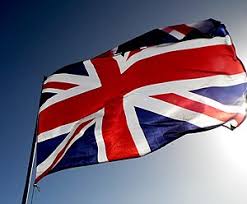


161 Nigerian students denied entry after failing UK border checks
Between 2021 and 2023, over 1,400 international students who had been admitted to universities in the United Kingdom were refused entry upon arrival at the country’s airports. Out of this total, 161 were Nigerian students who were deported upon their arrival.
Data obtained from the UK Home Office through the Freedom of Information Act reveals that students from India were the most affected, with 644 cases, representing 45% of the total. Nigeria was next, accounting for 11.3% of the cases, followed by Ghana with 92 cases (6.46%) and Bangladesh with 90 cases (6.32%).
The data, which covers the period from October 2021 to October 2023, specifically addresses cases where students were denied entry at the airport. It does not include instances of deportation by the Home Office due to visa violations, such as working more than the allowed 20 hours per week or academic misconduct.
The reasons for the denial of entry were not detailed in the Home Office’s report. However, it is understood that some students were turned away due to their inability to effectively communicate with Border Force officers, presenting fraudulent documents, or demonstrating insufficient English language proficiency.
In September 2023, Dele Olawanle, an immigration lawyer based in North London, criticized the treatment of students by UK Border Force officers, accusing them of acting beyond their role as admission officers. Olawanle noted that some students were questioned about details of their courses, which was not part of the officers’ responsibilities. He expressed frustration over having dealt with multiple such cases in a short period.
A data analyst named Nelly Okechukwu also shared his experience, describing how he was asked to explain details of a course he had completed years earlier, after a long flight.
For the 2021/2022 academic year, data from the Higher Education Statistics Agency (HESA) shows that UK universities admitted a total of 679,970 international students. Among them, Nigeria had the highest number from Africa, with 44,195 students. This number increased to 72,355 in the 2022/2023 academic year.
According to SBM Intelligence, Nigerian students and their dependents contributed approximately £1.9 billion to the UK economy during the 2021/2022 academic year. Overall, international students contributed £41.9 billion to the UK economy in the same period.
Universities UK International, the umbrella organization for UK universities, stated that it could not comment on the removal data, noting that the number of students refused entry was a small fraction of those who were granted visas.
The Nigerians in Diaspora Commission (NIDCOM) reported no cases of students being unfairly denied entry. Meanwhile, Emmanuel Gbadega, Director of Story Across Globe, suggested that students might be rejected if they appear suspicious or fail to adequately explain their purpose in the UK. He advised that students could seek refunds from their universities if denied entry.
Immigration lawyer Adeola Oyinlade urged Nigeria’s Ministry of Foreign Affairs and NIDCOM to address the issue of student removals and advised students to comply with entry decisions to avoid long-term bans. Dr. Yemi Opemuti, another immigration lawyer, emphasized that holding a visa does not guarantee entry, as immigration officers have the authority to deny entry or deport individuals based on their assessment at the port of entry.
The UK Home Affairs and the British High Commission in Nigeria did not respond to inquiries about this issue. The number of Nigerian students traveling to the UK has reportedly declined due to new restrictions on dependents of student visa holders, implemented in January 2024, and the devaluation of the naira, which has increased the cost of studying abroad.



